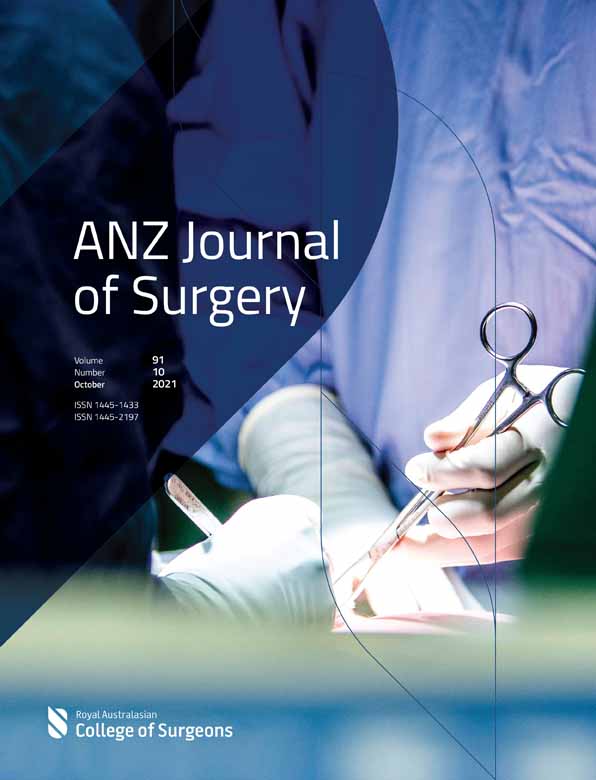The impact of the COVID-19 pandemic on colorectal cancer diagnosis and management: a Binational Colorectal Cancer Audit study
The corresponding author is not the recipient of a research scholarship.
Not based on previous communication to a society or meeting.
Abstract
Background
The COVID-19 pandemic has resulted in global disruptions to the delivery of healthcare. The national responses of Australia and New Zealand has resulted in unprecedented changes to the care of colorectal cancer patients, amongst others. This paper aims to determine the impact of COVID-19 on colorectal cancer diagnosis and management in Australia and New Zealand.
Methods
This is a multicentre retrospective cohort study using the prospectively maintained Binational Colorectal Cancer Audit (BCCA) registry. Data is contributed by over 200 surgeons in Australia and New Zealand. Patients receiving colorectal cancer surgery during the pandemic were compared to averages from the same period over the preceding 3 years.
Results
There were fewer operations in 2020 than the historical average. During April to June, patients were younger, more likely to have operations in public hospitals and more likely to have urgent or emergency operations. By October to December, proportionally less patients had Stage I disease, proportionally more had Stage II or III disease and there was no difference in Stage IV disease. Patients were less likely to have rectal cancer, were increasingly likely to have urgent or emergency surgery and more likely to have a stoma created.
Conclusion
This study shows that the response to COVID-19 has had measurably negative effects on the diagnosis and management of colorectal cancer in two countries that have had significantly fewer COVID-19 cases than many other countries. The long-term effects on survival and recurrence are yet to be known, but could be significant.
Conflict of interest
The authors declare no potential conflict of interest.
Open Research
Data availability statement
Data involved in this publication has been obtained from the Binational Colorectal Cancer Audit (BCCA). BCCA is supported by CSSANZ, the Colon and Rectal Surgery Section of the Royal Australasian College of Surgeons and BCCA users. https://www.bowelcanceraudit.com/




